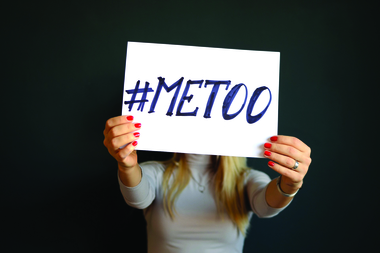Sexual Assault in the LGBT+ Community

by Molly Bryant
Guest Writer
(Trigger warning – sexual assault)
If you have seen any news in the past six months, you have probably heard about the #MeToo and Times Up movements. While these movements have been integral in raising awareness about sexual assault, the narrative has been mostly heteronormative focusing on cisgender men and women.
So where are the stories from the LGBT+ community? Their coverage has been few and far between but not because they aren’t there. Members of the LGBT+ community are at greater risk of being a victim of sexual assault.
LGBT+ individuals are less likely to get needed help because of historical oppression, stigma, potential homophobia or transphobia from service-providers, as well as lack of confidence in law enforcement and our legal systems, among many other reasons.
Sexual assault encompasses a myriad of victimizations, including, but not limited to, rape, attempted rape, unwanted sexual contact of any kind, forced penetration and non-consensual touching both under or over clothing, even within the context of committed relationships.
Nearly half of bisexual men, four out of 10 gay men, and one in five heterosexual men have experienced sexual violence. Over half of all transgender individuals will become victims of rape, and the violence which accompanies their assault is often more severe or life-threatening than with any other group of people.
Further, almost half of bisexual women will experience rape in their lifetime, compared to one in six straight women.
The only outliers in the LGBT+ community are lesbians, who report much lower rates of sexual assault and rape, averaging around one in eight.
Why do lesbians see much lower rates of sexual assault? Sorry, #notallmen, it’s you.
The clear majority of women who have experienced rape reported male perpetrators; 98.3 percent of bisexual women and 99.1 percent of heterosexual women.
Males are also responsible for the assaults against 76.8 percent of gay men and 65.8 percent of bisexual men who have experienced sexual violence.
Women can still commit rape and sexual assault, but the rates of female perpetrators are drastically lower than males.
If you have never experienced sexual violence and think this has nothing to do with you, you’re wrong. Whether we recognize it or not, all of us know someone who has been a victim of sexual assault.
Further, we are all a part of a traditionally sexist, patriarchal, toxic-masculinity-loving culture which promotes the hypersexualization of women, gay men and transgender people.
We don’t need to be a therapist or social worker to help change the culture, or even help someone we love who has been affected by sexual assault. Our responsibility is to listen to victims of sexual assault, affirm their experiences, champion their choices, and help them find the appropriate services for their needs.
We should also consistently interrupt homophobic, transphobic, victim-blaming, slut-shaming behavior.
It doesn’t matter if your bisexual friend was blackout drunk, high on ecstasy and not wearing any pants. It is not their fault. They did not ask to be assaulted. It doesn’t matter who they like to sleep with or how often. No one deserves to be assaulted, raped or violated.
If you or someone you know has been affected by sexual violence of any kind, your local sexual assault programs are fantastic places to start.
Here are some free and confidential national organizations: The Network/La Red– serves LGBTQ, poly and kink/BDSM survivors of abuse:
(617) 742-4911. Northwest Network serves LGBT survivors of abuse;:(206) 568-7777. National Sexual Assault Hotline (can refer to local rape crisis center): 1 (800) 656-HOPE (4673) 24/7.
Molly Bryant, MSW is the Underserved Outreach Advocate at Domestic Violence Intervention Services (DVIS) in Tulsa, OK. If you or someone you know is affected by domestic violence or sexual assault, please call DVIS at (918) 743-5763 or the National Domestic Violence Hotline at 1 (800)799-7233, (800) 787-3224 (TTY).
The Gayly. April 17, 2018. 9:55 a.m. CST.





